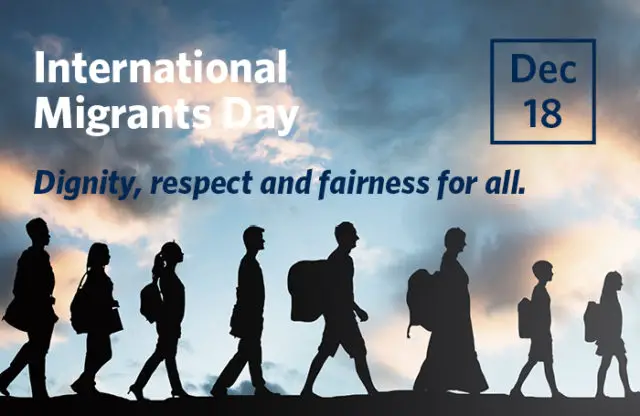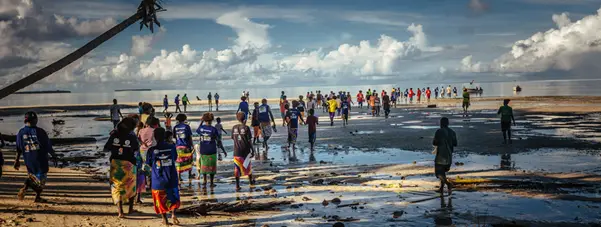In December of 2000, the United Nations General Assembly proclaimed the “International Migrants Day” held every year on December 18. The commemoration of this day is a call to the governments of the world to accelerate migration policies in a safe and regulated manner.

Migration has been a courageous expression of the individual determination to overcome adversity and seek a better life. Currently, migration has taken a greater impulse, here are two important facts that you should know:
1. In 2019, the number of migrants reached 272 million, 51 million more than in 2009.
2. In 2019, International migrants comprise 3.5% of the world’s population, a figure that continues in an upward trend, comparing it with 2.9% in 2009.
The United Nations is actively and permanently working in this area, to create more dialogues and interactions between countries and regions, as well as to promote the exchange of experiences and opportunities for collaboration.
It is worth mentioning that on September 19, 2016, the General Assembly approved a set of measures during the first summit in history on the movements of migrants and refugees. The guidelines that were agreed upon in this assembly reaffirm the importance of international protection of migrants and underlined the obligation of States to improve it.
Why do people decide to migrate?

The first thing you should know is that since ancient times, human beings have been in constant movement or transit and one could say that this activity is one of the oldest. The main characteristics by which people decide to migrate from their country of origin are: to look for work or new economic opportunities, to meet with their relatives or to study. Other causes of migration that are currently the most common are escaping conflicts, persecutions, terrorism or human rights violations or abuses.
These are some of the most frequent causes for which people decide to emigrate, which is why at the UN summit with the presence of all member countries reached an agreement on a final document on migration which is named “The New York Declaration”.
The New York Declaration
This statement contains bold commitments aimed at solving the problems we face today and preparing the world to face future challenges. Among which we have:
- Protecting the human rights of all refugees and migrants, regardless of their status. This includes the rights of women and girls, as well as promoting their full, fruitful and equal participation in the search for solutions.
- Ensuring that all refugee and migrant children are in school within less time possible after arrival.
- Preventing sexual and gender-based violence, and responding when it happens.
- Providing support to countries that rescue, receive and host a large number of refugees and migrants.
- Working to end the practice of detaining children to determine their immigration status.
- Strongly condemning xenophobia against refugees and migrants, and support a global campaign to combat it.
- Improving the provision of humanitarian and development assistance in the most affected countries, in particular through innovative modalities of multilateral financial solutions, to address all funding deficits.
Costa Rica with regards to immigration matters
Recently the Vice President of Costa Rica, Epsy Campbell, stated that her country seeks international cooperation to attend Nicaraguan refugees because its internal budget is limited to meet the high demand for migrants. “We are proposing programs and projects to different entities, mainly, the United Nations that has a robust migration agenda”, the two most important are the International Organization for Migration (IOM) and the United Nations High Commissioner for Refugees (UNHCR)”.
According to a survey conducted recently by the Center for Research and Political Studies of the University of San José, 85% of the Costa Rican general population stated that they respect the rights of migrants who seek refuge in the country.

